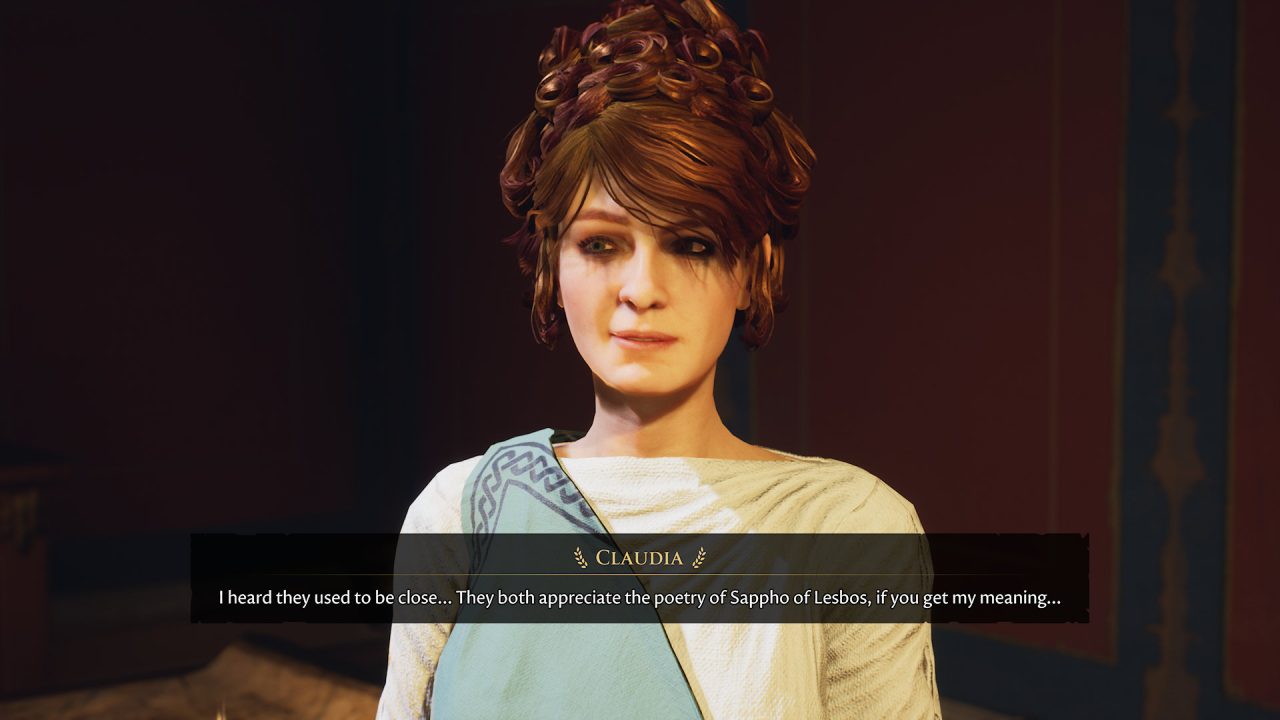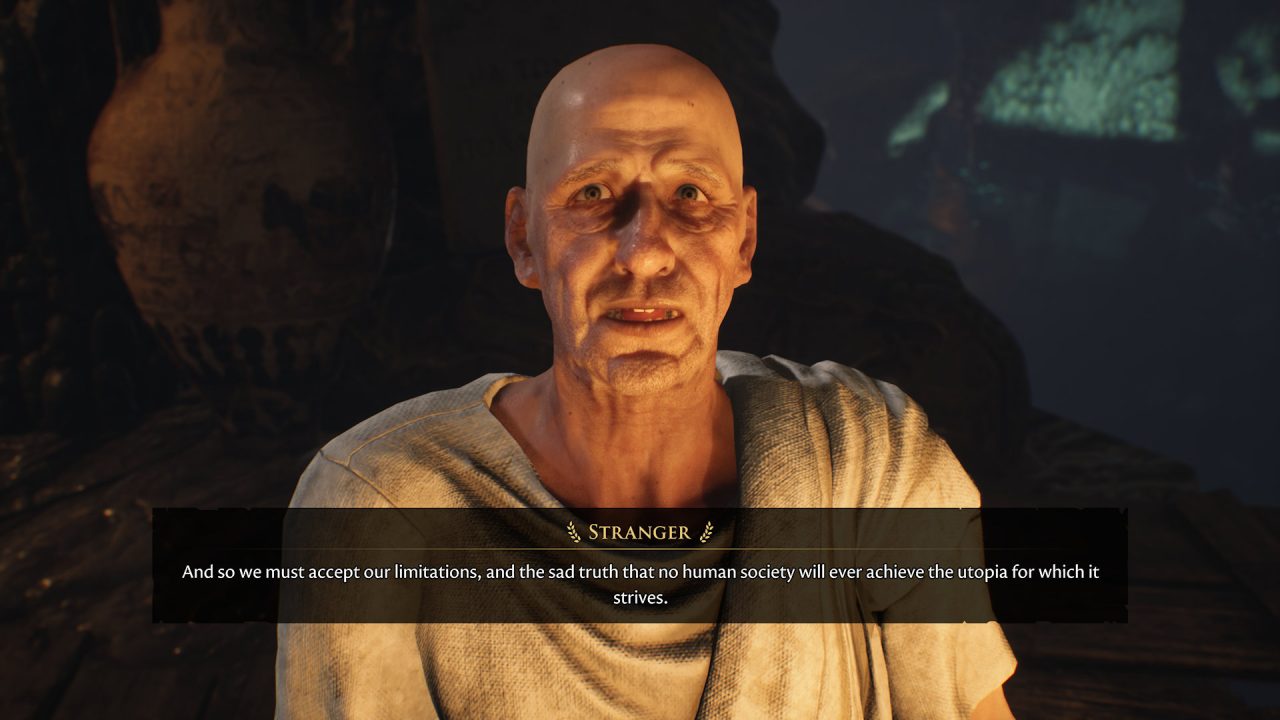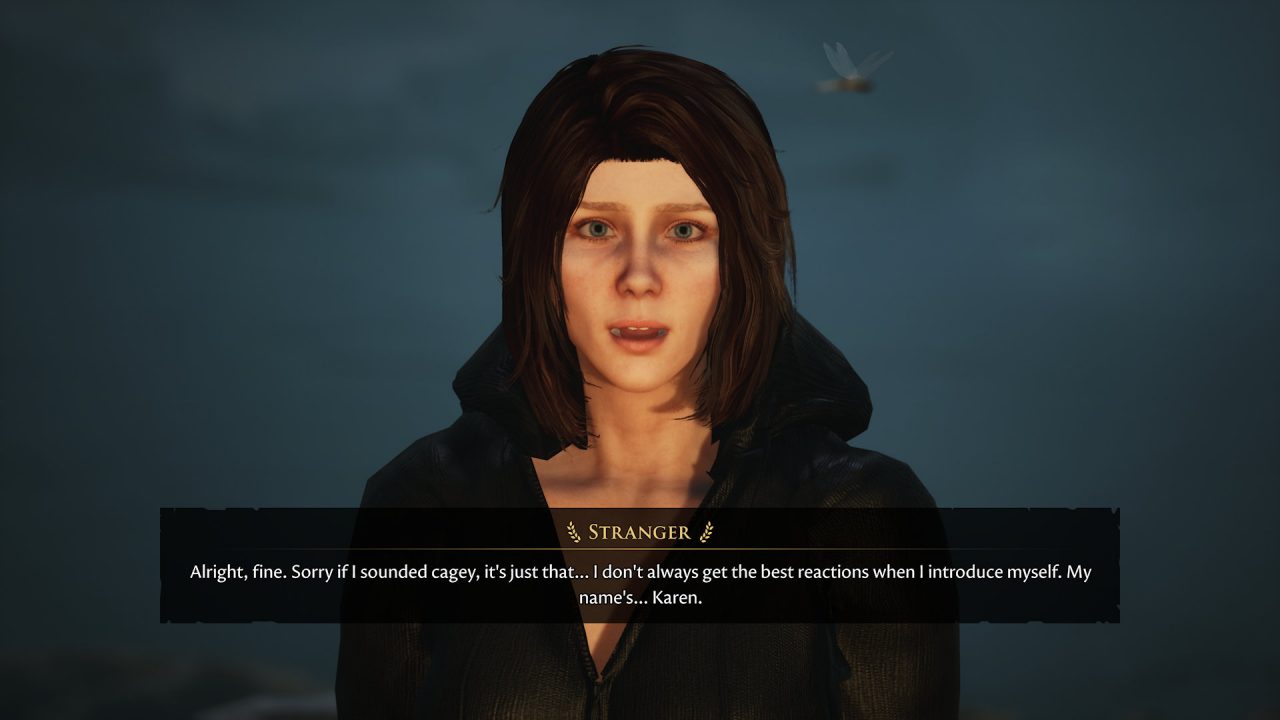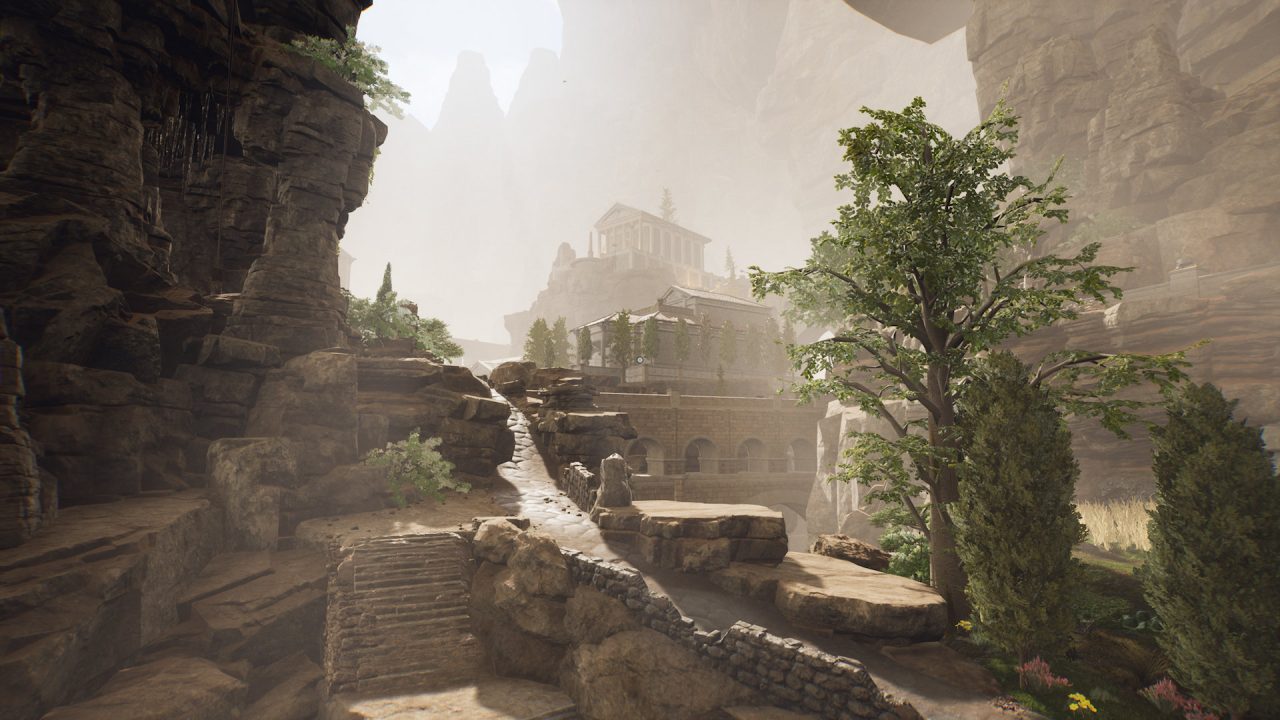Is there ever a reason why the many should be punished for the actions of the one? Early in The Forgotten City, an NPC told me about his experience with the Roman practice of decimation: a form of military discipline through which every cohort of soldiers executed the tenth man in their group. The Romans used decimation to punish legions guilty of cowardice, insubordination, and other misconduct. I breathed a sigh of relief, thankful to be born thousands of years too late to experience this brutality.
Still, I wondered what horrors decimation might yield if applied outside the military context and about what I’d do if faced with such a regime. It turns out that The Forgotten City is an effort to satiate that very curiosity. A particularly harsh iteration of the golden rule is the law in the titular town; if one resident sins, the gilded statues littering the city spring to life and massacre everybody — you included.
Ultimately, The Forgotten City succeeds at more than exemplifying this cruel concept. It proves yet again that an indie studio’s vision and heart can more than make up for limited resources. This memorable adventure game invites you to explore age-old questions about morality and philosophy that’ll rack your brain well after you see its heartwarming epilogue. Engrossing writing and a riveting soundtrack make this a title that no adventure or RPG fan should skip.
You begin this ambitious journey rather simply with a whodunnit. Moments after you find yourself stranded in this 2,000-year-old town, its magistrate tasks you with identifying a wrongdoer responsible for a dangerous sin. To find the culprit, you need to investigate the city’s 20-odd residents — scheming politicians, closet Christians, a thirsty barmaid, an openly gay merchant and his mystery harasser, a kleptomaniac, and a host of other intriguing personalities.

This premise might sound familiar, but the game layers it with a few novel wrinkles. First, this mystery is less a whodunnit and more a whogonnadoit: the offender will inevitably sin, but they haven’t, yet. Second, thanks to this town’s take on the golden rule, they’ll bring all hell upon the city when they do. Luckily, whenever shit hits the fan, the magistrate sacrifices himself to Proserpina, the Roman goddess of renewal. In return, Proserpina opens up a time portal you hop into to start your day anew and hopefully thwart the sinner before they murder you all.
I’m a little trepidatious with time loop-based games, but this one pulls off the mechanic without a hitch. Losing progress is my biggest woe, so I was relieved to learn you never need to worry about that here. When beginning the day anew, you retain the items and denarii (currency) you had when the town got painted red. You also encounter clever dialogue options that let you recapture your spot in the narrative immediately. Because this time loop mechanic is so painless, I felt comfortable experimenting with risky dialogue decisions and venturing off the beaten path. This freedom is a welcome change from most Western RPGs, which tend to penalize players for making suboptimal dialogue choices.
The Forgotten City also focuses on thorny questions surrounding decimation. Does its application of the golden rule result in a utopia or rather an anxiety-ridden mess of people focused on sneaky, “sin-free” ways to achieve selfish ends? And what constitutes an objectively sinful act? Everybody agrees that murder and theft fit the bill, and these wrongs do awaken the murderous statues. But what about bribery, blasphemy, dishonesty by omission and other frowned-upon actions? Can extraordinary circumstances justify a sin and render it a moral act?

Nearly everyone is melting down over these questions, afraid their shady secrets will doom you all. Witnessing their moral struggles and experimenting with the boundaries of the golden rule are some of the most fun I’ve had in an adventure game ever. Though The Forgotten City’s answers to these dilemmas aren’t always as captivating as the philosophical works it borrows from, its impressively written and acted exploration of these issues kept me glued to my seat for my entire playthrough. And in the few days that followed, I struggled to think about much other than the game — praise I can heap on few RPGs or adventure titles.
You explore these philosophical quandaries by chatting with and completing quests for your new neighbors. Modern Storyteller deserves kudos for penning thought-provoking dialogue for more than 20 characters. Nearly all NPCs offer branching narrative paths detailing their backstories, goals and vices, and most of the cast boasts fully fleshed out, engaging characterizations. Each resident feels distinct, and many radiate more personality than I expect from AAA games. I especially enjoyed getting to know Galerius, an endearing farmer with a heart of gold and a pivotal role in the late-game narrative.
Nonetheless, a few characters are conspicuously half-baked. Vergil, a friendly merchant who finds himself the victim of a mystery harasser, feels especially disconnected from the main story and provides little world-building or other dialogue. Once you wrap up his quick quest, he fades into the background, and you probably won’t see him again unless you seek him out. Fabia, Georgius, and several others also feel superficial and meet the same fate. Had Modern Storyteller invested more in these characters, they could’ve brought even more life to this fascinating city and its troubled residents.

You chart your own course through The Forgotten City. Like in Skyrim, which this game originated as a mod for, you choose the order in which you complete plotlines, and you can skip some if you’re so inclined. Decisions you make as part of one plotline may impact how you resolve others, and you can often resolve quests in several ways. For instance, one quest calls for you to sneak into a locked villa to do some intrigue. To get in, you can bribe a guard for a key, leap off a cliff into the villa’s pool, or climb the villa’s walls. However, one of these paths may lead a townsperson to commit suicide, and another is available only if you’ve wrapped up another questline.
The freedom I had to decide when and how to tackle quests kept me entirely engaged in the game’s storylines. I didn’t always enjoy the consequences of my decisions, but it felt invigorating to make them. By cleverly reacting to my choices and reshaping its narrative in response to my actions, The Forgotten City feels genuinely alive. My choices also impacted which of the four endings I experienced, compelling me to replay this journey more than once.
You can choose violence to complete a few quests, but I don’t recommend it. Combat is overly simplistic; you can shoot your bow or gun, sprint, move around and little else. Abilities, crafting and other Skyrim mainstays are absent. Aiming and shooting also feel floaty and imprecise, giving fights a janky feel I quickly tired of. I can’t say I was disappointed to learn that the combat bits are few and far between, but I wish Modern Storyteller gave this battle system more time in the development oven.
The Forgotten City’s audio is another of its selling points. Actors voice all their dialogue wonderfully and breathe life and flair into every denizen of this troubled town. I’m occasionally guilty of fast-forwarding voiceovers and skimming captions, instead, but I was so taken with the acting here that I never once considered skipping a line of it. This is an astounding feat for a dialogue-driven indie game with dozens of characters and even more accents. Michael Allen’s 30-track score is also one for the ages. It gets your blood pumping for battle, conveys the awe of discovering this ancient city, and makes every walk down its streets feel like an epic journey.

The graphics are less likely to wow you, but they’re clear, crisp, and reasonably detailed. Character and environmental designs are a glow-up from what I expected of a title with Skyrim roots. I saw more hitching and draw distance issues than I expected to, and I fell victim to a few annoying – but not game-breaking – bugs that Modern Storyteller should’ve patched out by now. However, none of these issues impacted my gameplay experience or severed my immersion in this rich world.
Even now, I can’t quiet the part of my mind ruminating on the questions that The Forgotten City masterfully explores. It’s among the most thought-provoking mystery games I’ve ever played, and my only serious gripe is that Modern Storyteller hasn’t released DLC that would allow me to continue my adventure. The Forgotten City offers an unforgettable journey into an ancient town filled with a charming cast, a rich, sprawling narrative, and a world-class soundtrack. This is one city that I recommend everybody visit.



